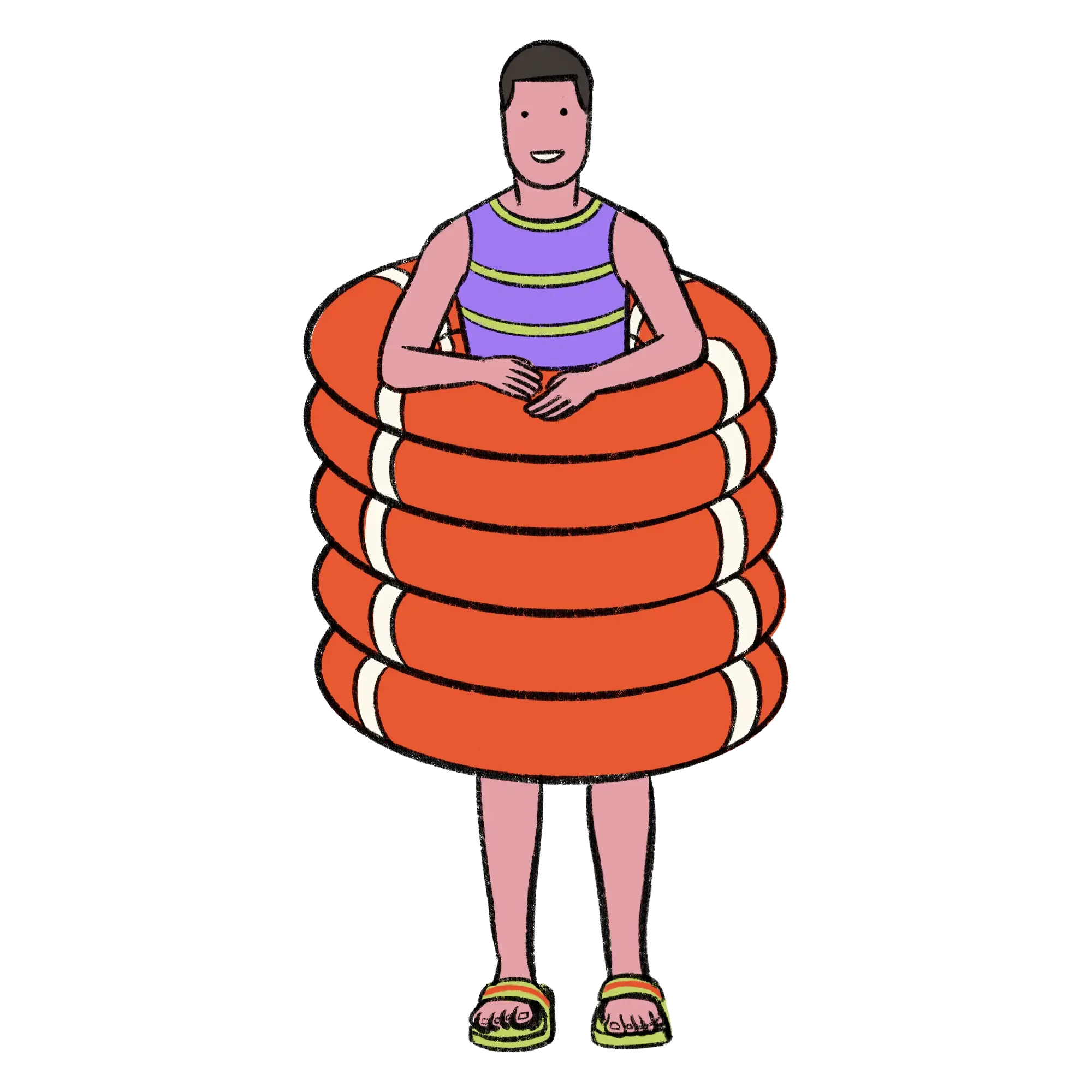Your former employees are generally not eligible for Maternity Benefit if they’re pregnant and unemployed.
The exception?
If their contract ends within 16 weeks of their baby’s due date and they meet the necessary Pay Related Social Insurance (PRSI) contribution requirements, they can receive Maternity Benefit from the Department of Social Protection.
We’ll tell you everything you need to know below.
Further Reading
Can Former Employees Qualify for Irish Maternity Benefit If They’re Unemployed?
Your employees can qualify for Maternity Benefit while they’re unemployed only if:
- Their employment contract with you ended within 16 weeks of the week of their child’s birth.
If your workers don’t meet this eligibility, here are four alternative social welfare payments they may qualify for.
Pregnant While Unemployed: 4 Alternative Benefits Former Employees Can Potentially Get in Ireland
Depending on your employees' circumstances, they may be eligible for any of these four social welfare entitlements:
1. Jobseeker’s Payments
If your employee is pregnant and already receives a Jobseeker’s Benefit or Allowance, they can continue receiving those benefits.
If not, they can apply for a Jobseeker's payment if they want temporary financial support while unemployed or seeking work.
What if your former workers don’t qualify for Jobseeker’s Benefit?
They may be eligible to receive a Jobseeker’s Allowance, subject to a means test and certain other conditions. Let’s check these out.
A. Eligibility Conditions
1. For Jobseeker’s Benefit, they must:
- Be over 18 and under 66 years of age.
- Be unemployed or working less than 4 days per week.
- Be available for and actively seeking work.
- Have enough social insurance contributions.
2. For Jobseeker’s Allowance, they must:
- Be over 18 and under 66 years of age.
- Be unemployed or working less than 3 days per week.
- Be available for and actively seeking work.
- Satisfy a means test determining whether they or their family are eligible for certain social welfare payments or services based on income and assets.
- Demonstrate that they have a right to reside in Ireland and intend to remain in Ireland for the foreseeable future.
B. Application
Your former employees can apply for Jobseeker’s Benefit or Allowance in two ways:
- Apply online at www.mywelfare.ie — they must have a basic MyGovID account.
- Apply in person at their nearest Intreo Centre or Social Welfare Branch Office.
C. 2025 Payment Rates
1. For Jobseeker’s Benefit:
- If their average weekly earnings are below €150:
- Maximum rate: €109.50
- Increase for an adult dependant: €104.90
- Increase for a child under 12: €50 (full rate), €25 (half-rate)
- Increase for a child over 12: €62 (full rate), €31 (half-rate)
- If their average weekly earnings are €150 - €219.99:
- Maximum rate: €157.30
- Increase for an adult dependant: €104.90
- If their average weekly earnings are €220 - €299.99:
- Maximum rate: €191.10
- Increase for an adult dependant: €104.90
- If their average weekly earnings are €300+:
- Maximum rate: €244
- Increase for an adult dependant: €162
- Increase for Child Dependents:
- Those receiving the Jobseeker’s benefit (all tiers) will get an increase of:
- €50 (full rate), €25 (half-rate) for child dependents under 12 years of age.
- €62 (full rate), €31 (half-rate) for child dependents above 12 years of age.
2. For Jobseeker’s Allowance:
- If they’re 25 years or older:
- Maximum rate: €244
- Increase for an adult dependant: €162
- Increase for a child under 12: €50 (full rate), €25 (half-rate)
- Increase for a child over 12: €62 (full rate), €31 (half-rate)
- If they're 18-24 years old & living independently:
- Maximum rate: €244
- Increase for an adult dependant: €162
- Increase for a child under 12: €50 (full rate), €25 (half-rate)
- Increase for a child over 12: €62 (full rate), €31 (half-rate)
- If they’re 18-24 years old & not living independently:
- Maximum rate: €153.70
- Increase for an adult dependant: €153.70
- If you have children, you qualify for the maximum personal rate of €244.
2. Illness Benefit
If your former workers are unemployed and unable to work due to illness or injury, they will continue to receive Illness Benefit as long as they’re certified by a general practitioner (GP).
They may also get an IQC (Increase for a Qualified Child) once their baby is born, meaning the amount of Illness Benefit they receive will increase.
But look:
Your former employees can’t use pregnancy as the medical reason to apply for Illness Benefit — unless they experience complications that meet the medical criteria.
Illness Benefit and any increases for adult dependants are taxable.
A. Eligibility Conditions
- They must be under the age of 66.
- They must be medically certified as unfit to work by a GP.
- They must apply within 6 weeks of becoming ill.
- They must have enough social insurance (PRSI) contributions.
B. Application
Unemployed pregnant women can send a completed claim form (IB1) and medical certificate by Freepost to: Social Welfare Services, P.O. Box 1650, Dublin 1.
C. Payment rate as of 2025
- If their average weekly earnings are €300+:
- Personal rate: €244
- Increase for an adult-dependent: €162
- If their average weekly earnings are €220 - €299.99:
- Personal rate: €191.10
- Increase for an adult-dependent: €104.90
- If their average weekly earnings are €150 - €219.99:
- Personal rate: €157.30
- Increase for an adult-dependent: €104.90
- If their average weekly earnings are below €150:
- Personal rate: €109.50
- Increase for an adult-dependent: €104.90
3. Disability Allowance
To qualify for disability benefits, your former pregnant employees must have a long-term illness or disability affecting their workability.
Like Illness Benefit, they may receive an IQC once their baby is born.
A. Eligibility Conditions
- They must be aged between 16 and 66 years.
- They must have a disability or a long-term illness that has lasted for at least one year or is expected to last at least one year.
- They must have a disability that restricts them from work suitable for their age, experience, and qualifications.
- They must live in Ireland and satisfy a means test and habitual residence conditions.
B. Application
Your former employees can obtain the Disability Allowance application form from their Social Welfare Branch Office or Intreo Centre, fill it out, and send it to the following address:
Department of Social Protection,
Social Welfare Services Office,
Government Buildings, Ballinalee Road,
Longford, Ireland
C. Payment rate as of 2025
- Personal rate (claimant): €244
- Increase for an adult-dependant: €162
- Increase for a child-dependant under 12: €50 (full rate), €25 (half-rate)
- Increase for a child-dependant over 12: €62 (full rate), €31 (half-rate)
4. One-Parent Family Payment
Is your former employee a single parent in Ireland?
They may be entitled to the One-Parent Family Payment (OFP) after their baby is born. It helps with living and childcare costs.
A. Eligibility Conditions
To qualify they must:
- Be the parent, step-parent, adoptive parent, or legal guardian of at least one child under 7 years of age.
- Be the primary carer of one or more children under the age limit. The child/children must live with you, and you must have sole custody.
- Pass the means test and habitual residence condition.
- Not be cohabiting or living with a spouse or civil partner. Cohabitants are couples that live together but aren’t married or in a civil partnership.
If they are separated or divorced, they must:
- Have been living separately from their spouse or civil partner for at least 3 months. This condition does not apply to cohabitants.
- Lack adequate maintenance by their spouse or civil partner if they are the child's parent.
If their civil partner or spouse is imprisoned, they must have spent at least 6 months in prison or custody.
B. Application
Unemployed pregnant women can mail their One-Parent Family Payment application form to their local Social Welfare Branch Office or Intreo Centre.
C. Payment rate as of 2025
- Maximum personal weekly rate: €244
- Increase for child-dependant under 12: €50
- Increase for child-dependant over 12: €25
How Can Employers Help Their Former Employees Access These Benefits?
As an employer, you play a key role in helping your former employees access the benefits they are entitled to. Here’s how:
- Provide PRSI contribution records: Upon contract termination, include the employee's leaving date in their final payroll submission and provide them with a record of their PRSI contributions, as these are essential for claiming Maternity Benefit.
- Clarify employment end dates: Clearly document the contract termination date, as eligibility for Maternity Benefit depends on how close the end date is to the baby’s due date.
- Guide your employees on applications: Direct former employees to apply for Maternity Benefit via www.mywelfare.ie or their local Intreo Centre, ensuring they understand the process and required documentation.
Help Your Former Employees Access Social Welfare Benefits in Ireland
In Ireland, your former employees may qualify for Maternity Benefit while unemployed if their contract ends within 16 weeks of their baby’s due date and they meet PRSI conditions.
By providing maternity benefit information and necessary documents, you can support them and strengthen your reputation as a responsible employer.
Offering clear guidance on Maternity Benefit eligibility and alternative welfare payments helps ease their transition to motherhood without added employment-related stress.
Encourage your former employees to contact their Social Welfare Branch Office or Intreo Centre for more information on these benefits.










.svg)
.svg)
.webp)
.webp)
.png)
.png)
.png)

.png)
.png)
.webp)
.webp)
.webp)
.webp)
.svg)
.svg)
.svg)


